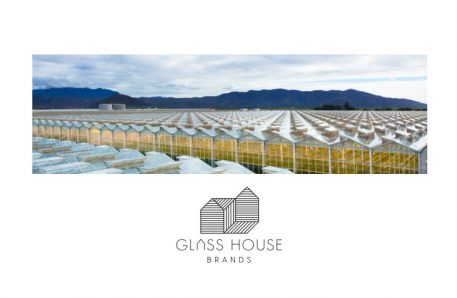, one of the fastest-growing, vertically integrated cannabis companies in the U.S., today reported financial results for its fourth quarter and year ending December 31, 2021.
With the first phase of our SoCal cultivation facility operational; and its construction on time and on budget; and the receipt of our nursery, cultivation and processing licenses, we are well on our way to becoming the top vertically integrated operator in California.
Looking at the quarter, despite a destructive wholesale pricing environment in California, we exceeded our original projections for top line revenue growth driven by a 31% increase in wholesale biomass sales versus Q3.
Wholesale flower prices are unsustainably low in California, and the other states which have experienced similar pressure bottomed before rising to a level which supports efficient cultivators.
We are focused on building exceptional brands, growing the breadth and depth of our product portfolio and retail store network, and we remain confident in our ability to be a best-in-class and influential market leader in the maturing California market.
Revenue was $18.4 million, an 8% increase compared to Q4 2020 and a 7% increase compared to Q3 2021.
The quarter included $3.0 million of non-cash expenses related to inventory reserves for obsolete or slow-moving product as well inventory revaluation of our biomass live plants to lower values to reflect current production costs.
Had Q3 2021 prices held into Q4, revenues and gross margin would have been $3.2 million higher, increasing margins by an additional 15 percentage points in Q4 2021.
Of this reserve, $2.2 million is related to the Element 7 transaction and an additional $1.0 million is related to a note issued to our Pottery venture.
Q4 2021 sales and marketing expenses were $1.2 million, a $0.3 million increase over Q3 2021 and a $0.8 million increase over Q4 2020.
On average for the fiscal year, the Company experienced a 38% decrease in flower prices and 45% decrease in smalls between 2020 and 2021. Had 2020 prices held throughout 2021, revenues would have been $12.1 million higher.
2020, most of which occurred in the second half of 2021, accounted for the majority of the 16 point decrease in gross margin during the year.
The increase in G&A expenses is primarily attributed to the Company’s initiatives in connection with operational expansion, including corporate, cultivation and retail operations, which resulted in an increase of $8.3 million across salaries and wages, stock-based compensation and IT consulting fees.
Sales and marketing expenses for 2021 and 2020 were $3.5 million and $1.5 million, respectively, an increase of $2.0 million, or 137%.
Professional fees for the year ended December 31, 2021 and 2020 were $9.1 million and $2.0 million, respectively, an increase of $7.0 million, or 345%.
The Company received the necessary licenses to operate Phase I of the SoCal facility on March 11th, including all California State licenses for nursery, cultivation, and processing operations; and the local cannabis business license from Ventura County.
Phase 1 includes approximately 500,000 square feet of nursery facilities, an approximately 900,000 square-foot Kubo ultra-clima high-efficiency greenhouse, a processing center and a new distribution center.
Isla Vista and Santa Ynez are in prime areas that are both limited to a single license, and these dispensaries will offer the same award-winning customer experience as the Company’s existing stores.
PLUS is one of the state’s top ranked brands in the edibles segment, such that the Company’s acquisition of the PLUS business would be expected to place Glass House in a top 5 position in both the flower and edible categories.
With cultivation already started in our SoCal facility, Glass House is even more focused on the cash flow potential of the Company.
From its greenhouse cultivation operations to its manufacturing practices, from brand-building to retailing, the company’s efforts are rooted in the respect for people, the environment, and the community that co-founders Kyle Kazan, Chairman and CEO, and Graham Farrar, President, instilled at the outset.
